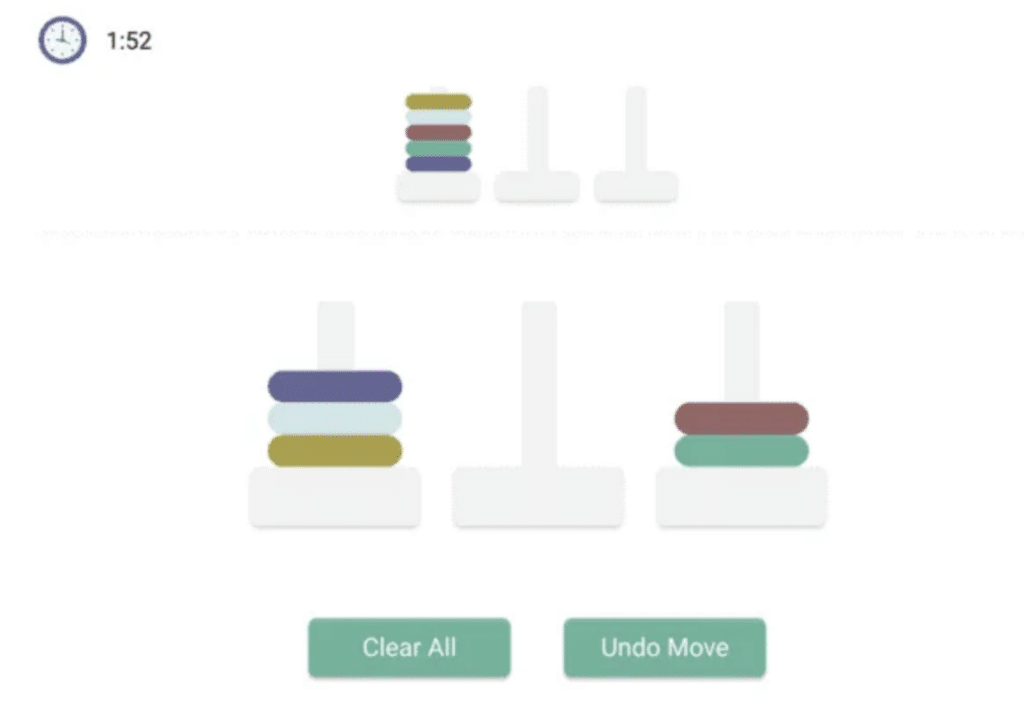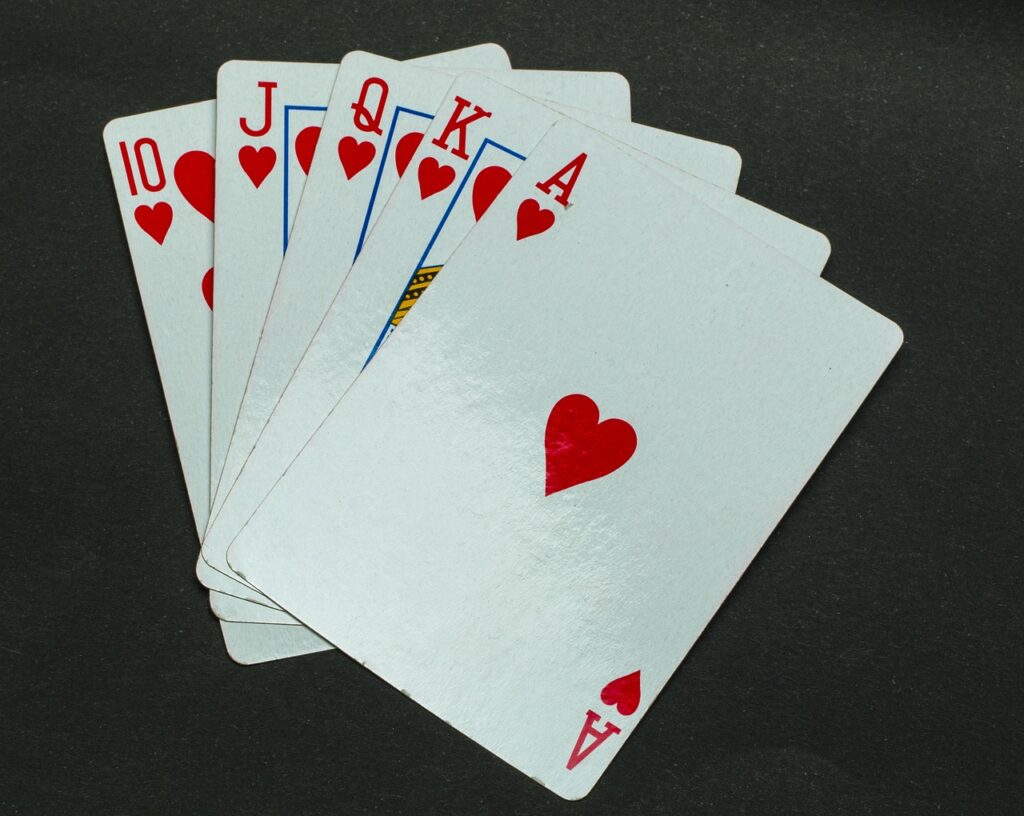
How To Prepare For The BCG Pymetrics Test – A Quick Guide
A large part of the global economy depends on management consulting firms to ensure the growth and success of their respective businesses. One of these well-known firms includes the Boston Consulting Group (BCG), a pioneer in business strategy for many corporations and organizations.
Due to the prestige status of the BCG, it employs strict and high standards for all its employees and aspiring applicants. They developed the BCG Pymetrics Test, a pre-employment assessment, which helps them gauge skills and compatibility with the company.
But unlike other tests, the BCG Pymetrics test employs a unique format through games. While some think this is something you do not need to prepare for, those who are determined to be part of this global firm need to brace themselves for this step.
Table of Contents
What Is the BCG Pymetrics Test?
The Boston Consulting Group was founded in 1963 and focuses on a “transformational approach” to empower businesses and organizations. As of today, the BCG has more than a hundred offices in more than 50 countries, employing more than 30,000 people globally. The firm also boasts an annual revenue of USD 1.7B as it serves clients that rank among the world’s top 500 corporations. This goes to show that there is significant prestige in being part of BCG, and the competition you may be facing once you decide to apply for a position in the firm. Aside from that, the company is also highly rated by former and current employees, boasting awards for its employee diversity and great company culture.
For those looking to become a consultant, BCG looks for innovative problem solvers that deliver positive value and long-lasting impact. But given these high standards, how does the firm filter out hundreds of applicants and look for the best candidate? This is where the BCG Pymetrics Test comes in: an algorithm-based, specially-developed pre-employment assessment for BCG job applicants.
Pymetrics is a company that helps companies, such as BCG, in their talent acquisition process by “using data-driven behavioral insights and audited AI to create a more efficient, effective, and fair hiring process across the talent lifecycle.” It focuses on looking for soft skills in job openings and matching them with the right applicants. The company also provides solutions for career and succession planning and leadership development.
The gamified soft skills assess the following cognitive traits in candidates and what they mean as aspiring consultants at BCG:
- Effort – How do you approach a task? How do you select tasks that yield the highest reward? A consultant is still a human being and therefore, has their limits. Consultants need to be methodical in where to focus their efforts so they can gain the highest rewards.
- Risk Tolerance – How do you approach risks and rewards? How do you look and weigh options and how can your personal preferences about risks affect your work? In general, consultants should be able to expertly weigh risks and rewards and provide recommendations that will yield bigger benefits with the least amount of risk possible.
- Decision Making – How do you make decisions? Do you factor in all information or do you depend on your intuition? As a consultant, decisions made can adversely affect the future of the client’s business. It is important that decisions are backed by the proper data, supported by one’s own tested intuition.
- Attention – How do you strategize work and task completion? How fast and/or effectively do you prefer to work? Management consultants need to be able to properly divide their attention among their clients, without compromising the quality of service. The smallest piece of data can change a recommendation.
- Focus – How do you handle multiple tasks at once? How fast can you change work priorities or learn instructions? Given that consultants may handle more than one client at any given moment, they need to be able to shift focus quickly and adapt to the environment, no matter how different it may be from the previous one.
- Learning – How fast can you absorb and retain information? How do you observe and approach a problem when presented to you? Do you receive criticism well? These are critical attitudes and characteristics that consultants must have, especially when it comes to learning about a client and their respective industries.
- Fairness – How do you judge situations? How do you come to the conclusion that something is fair or not fair? When working in teams or large groups, consultants need to be more aware of conflicts and any issues that may come up between parties. In the end, recommendations should put the client and business at the forefront, providing clear-cut information and a strategy that isn’t biased towards one party alone.
- Generosity – How would you share resources or rewards? As team leaders, consultants also need to value generosity to maintain team harmony, without sacrificing quality and values. When it comes to clients, consultants also need to be able to sacrifice their own time every now and then to ensure quality service.
- Emotion – How do you interpret emotions when presented to you? Do you factor in any information when making these decisions? When approaching clients, great interpersonal and communication skills are needed by consultants. The ability to read body language is also a great advantage in this line of work. This will help bridge the gap in making decisions and create trusted bonds with clients.
The core Pymetrics test consists of 12 digital games that go deeper beyond the usual tests. Applicants can complete the test using any device that has access to the internet, preferably a smartphone, and only takes 2-3 minutes for each test. The test would take around 30 minutes but can assess up to 91 skills (divided into the nine traits) and compare it to the benchmark traits set for the position you are applying for.
Given that the test actually consists of games, is there any way to prepare for it? If you are a video game enthusiast yourself, then you would know that the answer is yes. While there are no correct answers that you need to look for, knowing the test you will be taking and taking the right approach for each game can definitely help.
Which Companies Use the BCG Pymetrics Test
BCG is just one of the many companies that employ the Pymetrics test in their hiring process. The following companies are also known to use Pymetrics tests:
- Kraft Heinz – American multinational food company
- Diageo – British multinational beverage company
- UPS – global logistics company
- Discover – credit card brand issues in the United States
- Clifton Larson Allen – professional services and accountancy firm
The advent of technology and the development of artificial intelligence (AI) has contributed to the increase of companies using services such as the Pymetrics test.
Why is the BCG Pymetrics Test Used
As a talent assessment platform powered by neuroscience games and AI, the BCG Pymetrics test allows recruiters to better know job applicants without dedicating too much time and resources, given the hundreds of applications the firm receives in a day. BCG aims to acquire an unbiased insight into soft skills that recruiters cannot get from a CV, cover letter, or recommendation letter. The test also eventually aims to help future employees excel in their positions and within the company.
The most important thing to know about the Pymetrics test is that you cannot retake the games after the time is up. Moreover, the results of your test are good for 330 days, or almost a year and other firms who use the Pymetrics test can see your results should you also apply to them.
What Are the 12 Games in Pymetrics Assessment
As previously stated, the BCG Pymetrics Test consists of 12 mini-games that will test different traits and soft skills needed for the position you are applying for. Knowing these games is half of the preparation for taking the test, so buckle up and make sure you know what you are in for:
- Balloon Game (Risk Tolerance) – A series of balloons with certain patterns will be shown on your screen. You will be asked to inflate them as large as possible without popping them. Aside from speed and control, being able to identify which specific patterns can inflate up to larger sizes will help in earning the most amount of money.
- Tower Game (Decision Making) – Your task is to re-stack shuffled disks in a specific order in the least number of moves possible. This is not a new game. Many kids toys and brain-stimulating applications have this feature. See below for the sample game from our partner over at JobTestPrep:
Photo from https://www.jobtestprep.com/bcg-aptitude-tests
- Money Exchange #1 (Risk Tolerance and Fairness) – You will be given a certain amount of money, to be divided between yourself and another character. You will be asked how much you want to give to the other person, any amount which will then be tripled. The character then will either give some of the money or none at all, after which you will be asked how fair the situation ended.
For example, you are given $20.00. You decide to give $6 to the character, which triples and they end up with $18 and you with $14. They give you back $4 only. Is this fair for you?
- Money Exchange #2 (Generosity and Fairness) – Similar to the previous game, you and your “partner” will be earning a certain amount of money which you will split together. However, in this game, you will be the one “taking” the money from your partner, and then asked how fair the situation ended.
- Keypress Game (Attention) – You will be asked to press a certain key on the keyboard as many times as you can within a given time period. The key is to start and stop exactly when the game tells you to. This game will test your reaction time.
- Hard or Easy Task Game (Risk Tolerance and Decision Making) – In this game, you will be asked to choose between an easy task (which pays a small amount of money) or a more difficult one (which pays a larger amount); you will have to assess which one is more worth it. It is also possible that the task you chose will not yield any amount at all.
- Digits Memory (Learning and Attention) – The game is quite simple: you will have to memorize a series of numbers to test your working memory.
- Stop Game (Learning and Attention) – You will be asked to press a certain key when a certain shape with color shows up on the screen. Pressing the key when the shape isn’t correct will factor into your score.
For example, the game will ask you to press the spacebar when you see green triangles. You must not press the key for other green shapes or other colored triangles. The sequence will be fast.
- Arrows Game (Learning and Focus) – A more difficult version of the Stop Game, you will be asked to press a certain key if the colored arrows shown on the screen are facing a certain direction. If the arrows are in another color, you will press another key.
- Lengths Game (Learning) – You will be shown two sets of mustaches or mouths and quickly decide which is longer. You will earn money/points if you are correct. However, the game is made difficult because the mouths are open at different sizes and can be confusing. There will be 15-20 sets per game.
- Cards Game (Decision Making and Risk Tolerance) – Similar to the game Solitaire, you will draw four cards from a deck and the task will be to earn the most amount of money, with a limited number of draws. There are patterns on the back of the cards which can help you identify if you will lose or gain money on a card. Your risk tolerance and decision-making abilities will be tested depending on how you approach each desk.
- Faces Game (Emotion) – Your emotional intelligence will be challenged with the Face Game, where you will be presented with a photo of a person and a short caption describing their situation. You will then choose the right emotion that the photo is showing. It may sound simple, but the photos, together with the caption, may need proper analysis to choose the correct emotion invoked.
These twelve games make up the core Pymetrics test; other games or tests can also be added, such as numerical and logical reasoning. At the end of the test, you will receive a trait report – which will let you know your traits and characteristics as it reflects in the workplace. The recruiter on the other hand will receive a report which shows if your traits match the predetermined ones that they are looking for in the position they want to fill.
While there is no prior knowledge needed to complete this test, it is important that you still prepare for it, especially considering that time is a huge factor for every game.
How Do You Prepare for the Pymetrics Test
It is important to note that BCG does not only use the Pymetrics test in their hiring process. There will be other steps and tests you may have to take before getting to the final round of interviews. Alongside preparing for this process, the following tips will be able to help you in this journey:
- Focus. Your time is limited in each test, so focus is the name of the game. Prepare your mind and environment in finishing each round to the best of your ability.
- Practice. The best way is to practice through simulations. There are many brain training apps or games available which have several of the tests mentioned, but it is still better to practice with complete test bundles especially made for the BCG Pymetrics Test.
- Read carefully. From the job requirements to the application guidelines, it pays to pay attention to details. Remember, BCG is a prestigious firm that hires talented individuals, both in hard and soft skills. Read instructions carefully so you do not make a mistake during the test and result in an “incompatible” fit band rating that would otherwise be different if you had read the guidelines thoroughly. Remember that once you receive the link from BCG or the recruiter, you will only have 48 hours to finish the test, otherwise you will be considered as having forfeited your application.
- Sharpen your eyes. Since a lot of the games use visual elements, focus on sharpening your ability to differentiate shapes and colors, as well as your hand-eye coordination. If you have a sight impairment, make sure to let your recruiter know.
- Fake it til you Make it. The traits and core values BCG looks for are good traits to have in general. When you are not practicing using your apps or test bundles, try to make decisions and focus on real-life situations.
- Check your device. Since each game only has an allotted time of 2-3 minutes each, make sure that your computer and internet connection can handle the test, as well as other digital aspects of the application. Make sure you also have a power bank or an outlet near you.
- Create a suitable environment. Take the test at home where you are most comfortable, and most preferably where you have been practicing and preparing for the test. This will help you relax and will reduce distractions such as noises, faulty Wi-Fi, pets, or other people. Let people at home that you will need to focus on the test and nothing else.
- When in doubt, ask. Recruiters are always ready to answer any inquiries you may have, especially if you are a fresh graduate. They understand that some aspects of the application may be unique, so do not be afraid to ask for help or assistance during the course of your application process.
After finishing the Pymetrics test, you can expect a series of interviews or case study tests where your other skills will be challenged, should you be chosen to get to the next level of application.
What Results Does BCG Want in Pymetrics
The BCG encourages diversity in talent and thinkers. The results of the BCG Pymetrics test allow them to find different kinds of consultants that can thrive in their high-demand environment.
The main goal of Pymetrics tests is to provide unbiased results. BCG states that “as an Equal Opportunity Employer, all qualified applicants will receive consideration for employment without regard to race, color, age, religion, sex, sexual orientation, gender identity/expression, national origin, protected veteran status, disability, or any other characteristic protected under federal, state or local law, where applicable, and those with criminal histories will be considered in a manner consistent with applicable state and local laws.”
In short, this gamified platform provides an equal footing for everyone, avoiding racial or gender bias, as well as possible cases of nepotism in the hiring process. The Pymetrics test is important, but it is not the sole factor for the decision-making by recruiters. Scoring high on the test, especially on the traits they are looking for, might get you an interview even if you are not as experienced as other applicants.
Moreover, it is important to take the Pymetrics test seriously since as mentioned earlier, your test results are recorded by Pymetrics and will be shared with other future employers you apply to if they also employ the test in their hiring process.
Let the Games Begin!
The BCG Pymetrics Tests is a science-based pre-employment assessment used by global firm Boston Consulting Group in their hiring process. The gamified platform uses mini-games to gauge a candidate’s range of soft skills and their compatibility with the position they are applying for. This test is just part of the hiring process, which may also include interviews, technical tests, and case study interviews.
It may sound mysterious or even daunting, but the Pymetrics test is developed to help both employers and job applicants: it reduces the time and resources spent by employers, while providing an unbiased platform for job applicants to showcase their skills.
For those aiming to start or advance their consulting careers with the Boston Consulting Group, it is important to treat the Pymetrics test as important as the other aspects of the job application process. While it does not need prior knowledge, knowing what the mini-games assess are and what they are for can help in the overall weight of your application.
Read also:
- How to Prepare for SHL Situational Judgement Test (SJT)?
- Korn Ferry Assessment: A Complete Study Guide with Practice Test
- Cut-e (Aon) Test: Everything You Need to Know
Sarah is an accomplished educator, researcher and author in the field of testing and assessment. She has worked with various educational institutions and organisations to develop innovative evaluation methods and enhance student learning. Sarah has published numerous articles and books on assessment and learning. Her passion for promoting equity and fairness in the education system fuels her commitment to sharing insights and best practices with educators and policymakers around the world.









